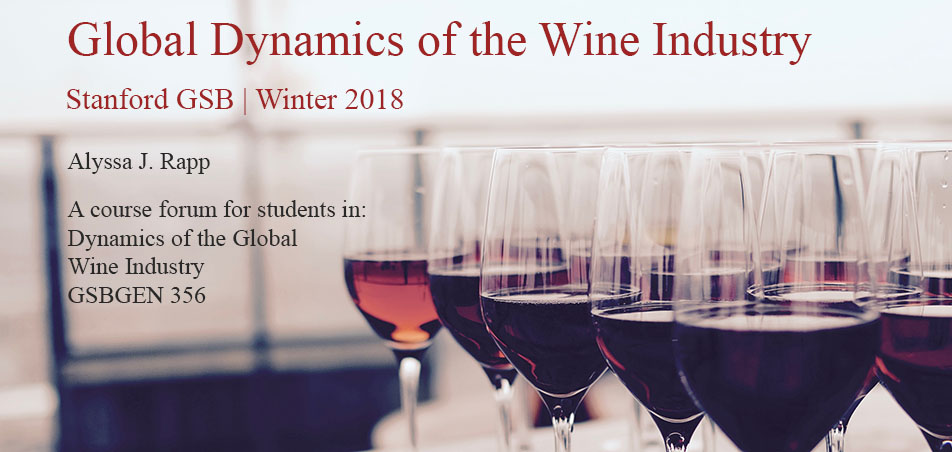OVERVIEW
The 2005 United States Supreme Court case, Granholm v. Heald, reshaped how wine was
sold throughout the United States and affirmed a principle of federalism
fundamental to the efficiency of the domestic economy.
The case involved an impressive roster of legal figures:
Kathleen M. Sullivan, the former Dean of Stanford Law School, and Kenneth W.
Starr, former D.C. Circuit judge, independent counsel on the Monica Lewinsky
investigation and recently-disgraced head of Baylor University, appeared on the
brief for Respondents. Eliot Spitzer
even made an appearance in his capacity as the New York State Attorney General.
At issue in the case was the practice in Michigan and New
York of favoring their home wineries to the detriment of out-of-staters. Both states used the three-tiered system for
wine distribution, where producers, wholesalers, and retailers were separately
licensed.
Michigan gave its approximately 40 in-state wineries the
home-court advantage through a special license.
This license allowed Michigan wineries to sell directly to Michigan
consumers. Out-of-state wineries could
only sell to wholesalers who would then sell to retailers who, only then would
reach the consumer. Each link in the
chain increased the cost, and the price, of getting a bottle of wine into the
hands of a Michiganian.
New York had a similarly skewed system: most wine
distribution in the state happened through the three-tiered system, but a
winery using only New York grapes could get a license allowing
direct-to-consumer shipping.
The Plaintiffs in the case included California wineries and
their owners who wished to sell to consumers in New York and Michigan directly. They did not appreciate the states’ practice
of creating structural barriers against healthy competition with in-state
wineries. They decided to take this
perceived injustice to the courts, relying on one of the most robust principles
of constitutional law to make their case.
However, they would have to overcome one of the most popular
constitutional amendments in United State’s history.
LEGAL BACKGROUND
The case pits two clauses of the Constitution against each other. Favoring the wineries was the Commerce
Clause, and favoring the states was the Twenty-First Amendment.
The Commerce Clause, (U.S. Constitution Article 1, Section
8, Clause 3), simply states, “[The Congress shall have Power] To regulate
Commerce with foreign Nations, and among the several States, and with the
Indian Tribes.” This means that Congress
(not the states) has the power to regulate interstate commerce. As a corollary, the Supreme Court has read in
a prohibition against states discriminating against or unduly burdening
interstate commerce. Reading Railroad v.
Pennsylvania, 82 U.S. 232 (1873).
This prohibition is captured in a concept known as the “Dormant Commerce
Clause.” Its purpose is “to prohibit
state or municipal laws whose object is local economic protectionism,” and
ensure efficient trade between states. C & A Carbone, Inc. v. Town of
Clarkstown, N.Y., 511 U.S. 383, 390 (1994).
The Twenty-First Amendment of
the Constitution repealed the Eighteenth Amendment and ended Prohibition in the
United States. It reads in relevant part:
Section 2. The
transportation or importation into any State, Territory, or possession of the
United States for delivery or use therein of intoxicating liquors, in violation
of the laws thereof, is hereby prohibited.
Section 2 of the Amendment is
generally understood to have delegated the power to regulate the alcoholic
beverage industry to the states.
ARGUMENT AND DECISION
The out-of-state wineries in this
case argued that the Dormant Commerce Clause’s prohibition against economic
protectionism should trump the Twenty-First Amendment’s delegation of authority
to the states. The states conceded that
in any other industry, this regulatory framework wouldn’t fly. But they said the Twenty-First Amendment made
the protectionist statutes a valid exercise of the states’ authority.
The states also argued in the alternative,
that if the dormant commerce clause did apply, their statutory frameworks fell
into an exception to the rule that allowed a discriminatory statute to stand if
it “advanced a legitimate local purpose that cannot be adequately served by reasonable
nondiscriminatory alternatives.” The
states argued that the framework was necessary to prevent minors from
purchasing wine over the internet, and that it prevented tax evasion.
The Supreme Court sided with the
wineries on all claims. It found that
the Twenty-First Amendment did not confer on states the authority to defy the
principles of the Dormant Commerce Clause.
States, even when it came to regulating wine, could not discriminate
against out-of-state providers. The
Court found that
the current patchwork of laws—with some
States banning direct shipments altogether, others doing so only for
out-of-state wines, and still others requiring reciprocity—is essentially the
product of an ongoing, low-level trade war. Allowing States to discriminate
against out-of-state wine “invite [s] a multiplication of preferential trade
areas destructive of the very purpose of the Commerce Clause.
Heald, 544 U.S. 460 at 473.
The Court further examined
whether the states’ “patchwork of laws” fell into the exception to the Dormant
Commerce Clause. They found the states
failed to meet the heavy burden of so proving.
CONCLUSION
After Heald, therefore, if a state wanted to allow its own wineries to
ship its wares directly to in-state consumers, it had to do the same for
out-of-state wineries. As we see in the
cases, this detangled somewhat the Gordian regulation of the alcoholic beverage
industry, and made competition a little a little more fair among producers.

Thank you for this detailed analysis, to our resident lawyer! Get ready to share these thoughtful comments in class.
ReplyDelete